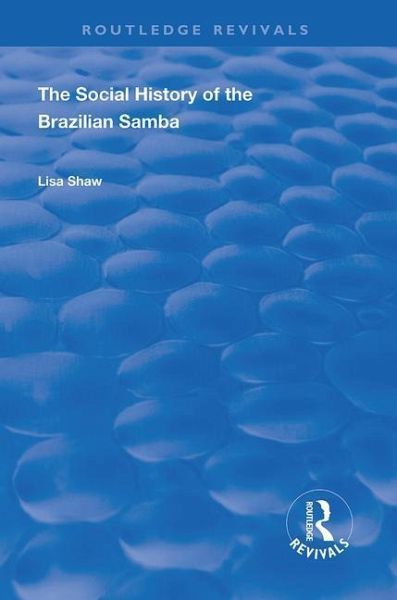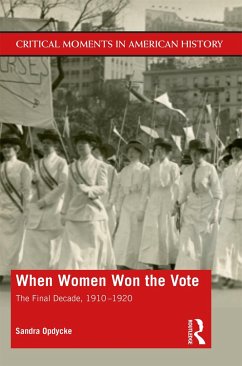
The Social History of the Brazilian Samba
Versandkostenfrei!
Versandfertig in 1-2 Wochen
49,99 €
inkl. MwSt.
Weitere Ausgaben:

PAYBACK Punkte
25 °P sammeln!
First published in 1999, this volume examines the impact of political, social and cultural developments on the nation's most popular musical form, samba, in the context of the period 1930-45, one of huge social change in Brazil, with the introduction of industrialization under the authoritarian regime of Getúlio Vargas. She looks at the context in which the songs were written, the life styles and social positions of the composers (sambistas), and their relationship to political and commercial structures. By studying samba lyrics we can obtain a clear picture of samba lyrics we can obtain a cl...
First published in 1999, this volume examines the impact of political, social and cultural developments on the nation's most popular musical form, samba, in the context of the period 1930-45, one of huge social change in Brazil, with the introduction of industrialization under the authoritarian regime of Getúlio Vargas. She looks at the context in which the songs were written, the life styles and social positions of the composers (sambistas), and their relationship to political and commercial structures. By studying samba lyrics we can obtain a clear picture of samba lyrics we can obtain a clear picture of samba's shifting status as it was transformed from the music of working-class blacks and was appropriated by mainstream middle-class culture. The final chapters of the book focus on the lyrics of three influential sambistas: Ataúlfo Alves, Noel Rosa and Ari Barroso, and look at the manner in which their songs both comply with and flout tradition and authority.














